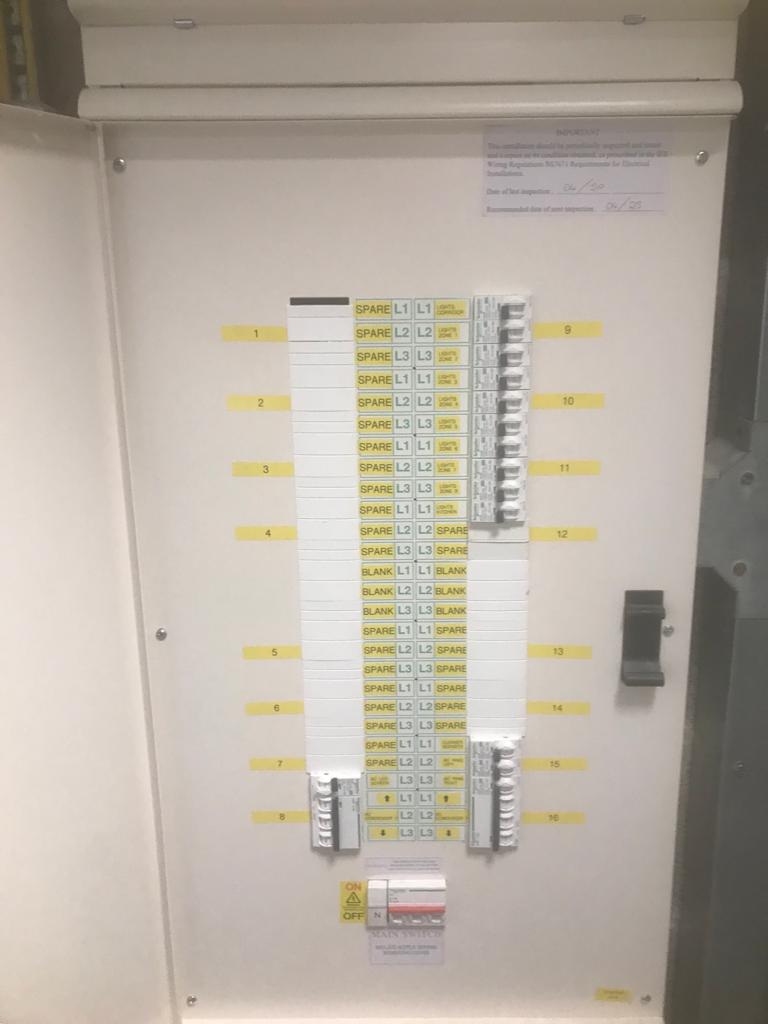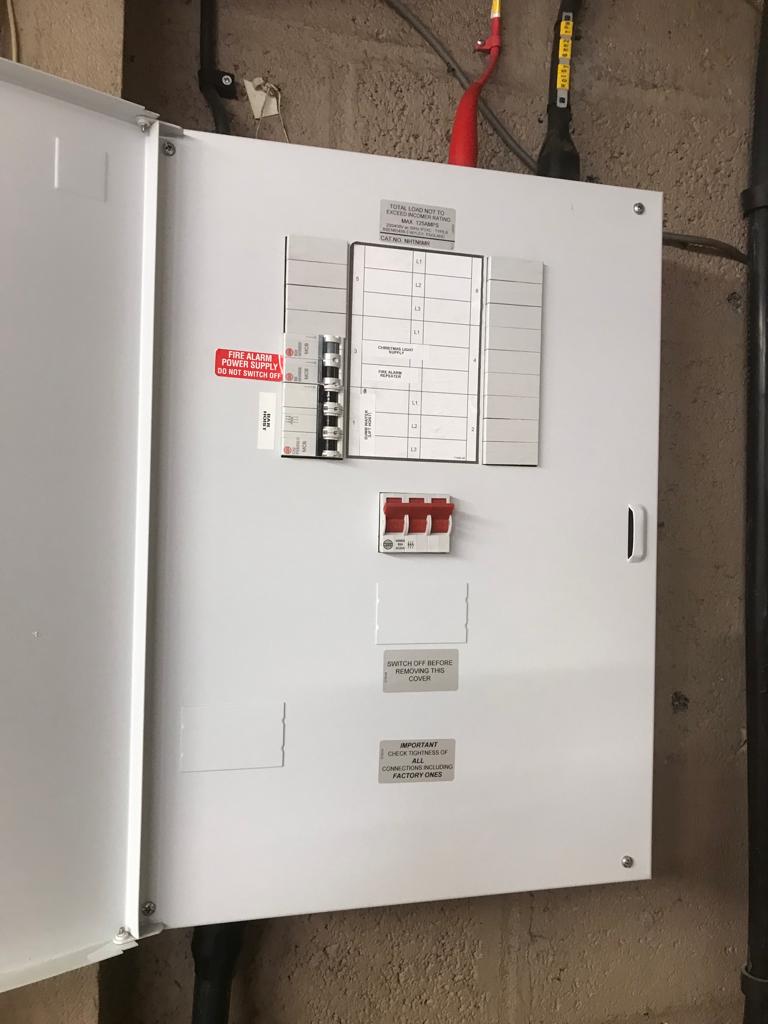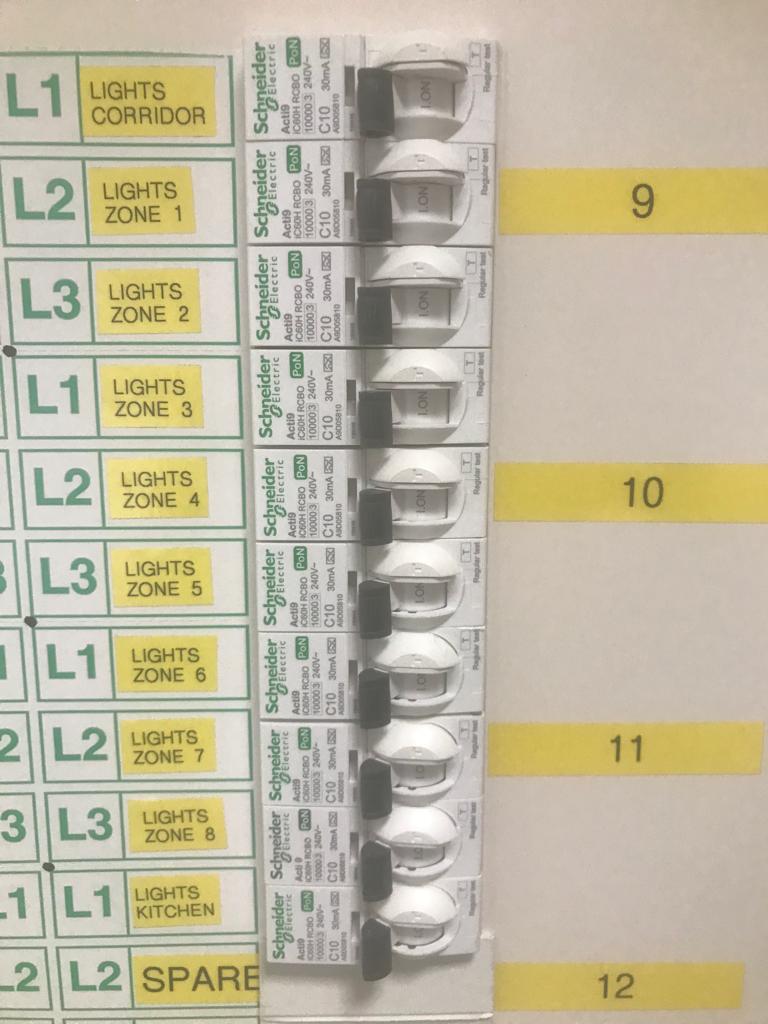What are Circuit Breakers?
In your electrical system, you will find circuit breakers are an essential part of the safety and operation. They are the failsafe to try and avoid electrical shock and electrical fires.
Circuit breakers are devices that protect electrical circuits. Primarily, from overcurrent and short circuits. Therefore, preventing potential damage and hazards.
To help you better understand these important components, we will explore the functionality and importance of circuit breakers.
The Function of a Circuit Breaker
Firstly, let’s understand the basic function of a circuit breaker. A circuit breaker acts as a safety device. Therefore, when it detects a fault, it automatically interrupts the flow of electrical current to the circuit. This happens when certain conditions happen such as
- Arc Fault
- Short Circuits
- Ground Fault Surges
- Circuit Overload
- A Defective Circuit Breaker
By “breaking” or opening the circuit, circuit breakers prevent excessive current from flowing and potentially causing damage to the electrical system. Furthermore, damage to equipment, or appliances.
The most important function of a circuit breaker is they avoid people coming into contact with electrical shock. Therefore, this interruption ensures the safety of the personnel using the electrical items and equipment. Furthermore, it protects the electrical wiring and components from being damaged.
Resetting a Circuit Breaker
One of the key advantages of circuit breakers is their ability to be reset after tripping. When an overcurrent or short circuit occurs, the circuit breaker trips. Thus, cutting off the flow of electricity.
This can be a quick surge or blip. However, when you see these issues it can be part of a larger problem.
The good thing is, once the electrical issue is resolved, the circuit breaker can be manually or automatically reset. Thereby, power is restored to the circuit. This resettable feature eliminates the need for replacing fuses. Fuses are one-time-use devices that need to be replaced each time they blow.
Circuit breakers offer convenience, and reduced downtime. All modern fuse boards have circuit breakers.
Types of Circuit Breakers
Circuit breakers come in various types and sizes to accommodate different applications and electrical loads.
The most common types include thermal-magnetic, magnetic, and residual current devices (RCDs), also known as ground fault circuit interrupters (GFCIs).
Thermal-magnetic circuit breakers protect against overloads and short circuits. They do this by using both thermal and magnetic elements to detect abnormal currents.
In contrast, Magnetic circuit breakers primarily detect short circuits using a magnetic coil.
RCDs or GFCIs are specialized circuit breakers designed to protect against electric shocks. They do this by monitoring the current balance between the live and neutral conductors.
They protect against
- Earth Faults
- Residual Currents
- Electrical Shocks
We explain in more detail about RCDs in this article “What is an RCD”
An RCBO is a breaker that does what an RCD breaker does but with the additional monitoring of
- Short Circuits
- Overloading
An RCBO is a residual current circuit breaker. Additionally, it is an overcurrent protection device. These breakers, like RCDs are installed within a fuse board to monitor circuits
We explain in more detail about RCBOs in this article “What is an RCBO”
Another type of protection device is an AFDD or Arc Fault Detection Device
These breakers are a type of protective devices that is installed in consumer units. Their primary functionality is protection from arc faults
We Explain in more detail about AFDD in this article “What is an AFDD?”
Circuit Breaker Isolation
Another advantage of circuit breakers is they provide selective coordination.
Selective coordination refers to the deliberate sequencing of circuit breakers to ensure that only the faulty portion of a circuit is isolated. This would occur during an overcurrent or short circuit event.
This feature allows for localised troubleshooting and maintenance. With only one circuit having issues or being worked on we therefore minimise disruption. There is no disruption to other parts of the electrical system.
Selective coordination is particularly crucial in critical facilities such as
- Hospitals
- Data Centres
- Manufacturing Plants
In fact, any building where an uninterrupted power supply is essential.
Electrical Safety
Circuit breakers are the first line of defence to fire prevention and electrical safety.
Due to their ability to interrupt the flow of excessive current, circuit breakers reduce the risk of electrical fires. As discussed, these can occur due to overloaded circuits or short circuits. Furthermore, a range of other reasons
The rapid response time of circuit breakers ensures prompt protection. Therefore, preventing damage and potential injury.
Furthermore, the installation of circuit breakers is regulated by electrical safety standards and codes. Therefore, you can be confident that your electrical systems comply with safety requirements. Thus, they provide reliable protection.
Why Does My Breaker Keep Tripping?
Arc Fault
These faults generally occur when you have a loose wire which creates a short contact. This leads to an arc or spark. In addition, they can be caused by corroded wires within the cable.
When an arc or spark happens, heat occurs, and you then have the risk of an electrical fire
What to look out for:
A common way to know this fault is through a buzzing sound in your sockets or light switches.
Short Circuit
These occur when a live wire makes contact with the neutral wire of your electrical outlets. The result is an increased amount of electrical current that is now flowing through the electrical circuit. This additional current and therefore additional heat is beyond what the circuit is capable of.
The breaker will trip to stop this constant overloading of current, to avoid dangers such as electrical fires.
What to look out for:
Commonly, these can be identified from a burning smell. With this burning smell, a stain may show itself around the breaker
Ground Fault Surges
This is a similar fault to that of a short circuit. With this fault, a live electrical wire makes contact with a ground wire or metal surface. This again causes an overload of electrical flow.
What to look out for:
Similar to short circuits, look for a stain that is created from the overheating. This will present itself as a brown or black mark on your electrical sockets.
Circuit Overload
This is probably the biggest cause of a breaker tripping. This is when the specific circuit is called on for more electricity than its designed or capable of. In essence, there is too much plugged into, or running on that circuit.
What to look out for:
In commercial spaces, the most common reason we see for this is the overuse of extension leads. Especially, extension leads plugged into extension leads.
we cover the use of extension leads more in this article “Are Extension Leads Safe”
If a circuit is tripping, you can try to plug devices into different sockets on different circuits to distribute the load.
Defective Circuit Breaker
Usually, the final check is for a defective breaker. If all the potential causes above aren’t the reason, then maybe the actual breaker itself is defective.
This can be due to the breaker being very old, or damaged from constant electrical overloading.
What to look out for:
Possible signs of a defective breaker could include.
- Burning Smells
- Stains or marks on the box itself
- A breaker that keeps tripping
- A breaker that you are unable to reset.
Conclusion: What are Circuit Breakers?
In conclusion, circuit breakers are crucial components of electrical systems. Firstly, they provide protection against overcurrents and short circuits.
With their resettable feature and various types for different applications, we have a range of options to suit our specific requirements.
With selective coordination capabilities, we can keep the majority of our electrical system live, even if we have a fault somewhere else.
Their most important contribution is to fire prevention and electrical safety. Circuit breakers are indispensable in maintaining the integrity and safety of electrical installations.
Whether in residential, commercial, or industrial settings, circuit breakers play a pivotal role. Thus, ensuring the reliable and safe distribution of electrical power.
For additional electrical articles please visit our main BLOG page here





